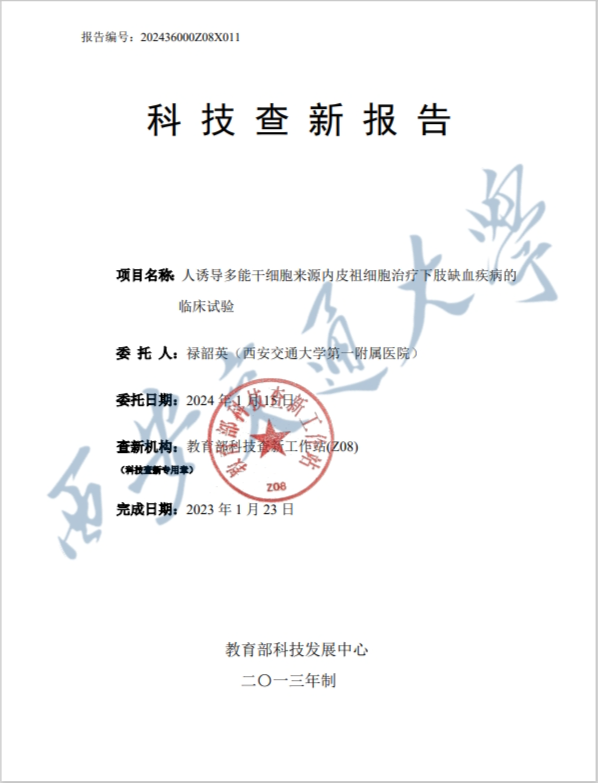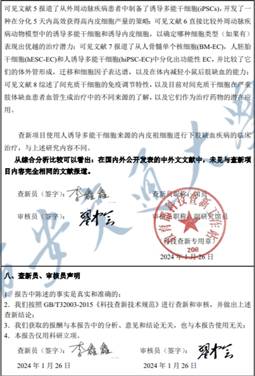On January 25, 2024, the first case of severe lower extremity arterial ischemia treated with allogeneic endothelial progenitor cells (EPCs) infusion was enrolled in Phase I clinical trial ward in the First Affiliated Hospital (FAH) of Xi'an Jiaotong University (XJTU). At present, the patient has stable vital signs, good general conditions and no obvious adverse reaction. After literature review, this is first case receiving such treatment worldwide.


The patient suffered from arteriosclerosis obliterans of the lower limbs, complicated with severe lesions, rest pain and foot ulcer, which seriously affected the quality of life. Due to lack of indications for the treatment of vessel occlusion, the patient faced a high risk of amputation. To resolve the pain of these patients, Lu Shaoying, Director of Department of Vascular Surgery, has led the team to be devoted to the application of stem cells in promoting angiogenesis for years and published multiple high-quality articles. Application of allogeneic EPC infusion in the treatment of of severe lower limb ischemia will bring new hope to such inoperable patients.
EPCs are the precursor cells of endothelial cells. In 1997, Japanese scholar Asahara isolated EPCs from human peripheral blood for the first time. EPCs are mobilized from bone marrow to peripheral blood during ischemia, specifically homed to the ischemic site, and differentiate into mature endothelial cells to participate in angiogenesis, promote collateral circulation and relieve ischemic symptoms. However, in most clinical practice, autologous bone marrow mononuclear cells isolated and cultured after bone puncture are primarily used as drugs, whereas the proportion of EPCs is low (5%), and cell function is poor, which is difficult to meet clinical requirements of ischemic diseases. The innovative highlight of this project lies in the use of peripheral blood mononuclear cells from healthy populations, which are reprogrammed into induced pluripotent stem cells (iPSC), and differentiated into EPCs after 7 days of directional induction, thereby improving cell concentration and treatment. After infusion, these cells will be enriched in ischemic areas of the lower limbs, repair vascular endothelium, and secrete various cytokines and growth factors, promote angiogenesis, establish collateral circulation, and treat severe ischemia of the lower limbs.
This project is a multi-center clinical study. FAH is the main PI affiliation, and 7 Chinese hospitals including the Southwest Hospital of Army Medical University, People's Hospital of Tongji University, Tangdu Hospital of Air Force Medical University, the First Affiliated Hospital of Xinjiang Medical University, the Second Affiliated Hospital of XJTU and Chifeng Municipal Hospital participate in this project. The clinical drug trial management institution (GCP) and Phase I clinical trial ward of the FAH provide tremendous guarantee for successful implementation of this project.